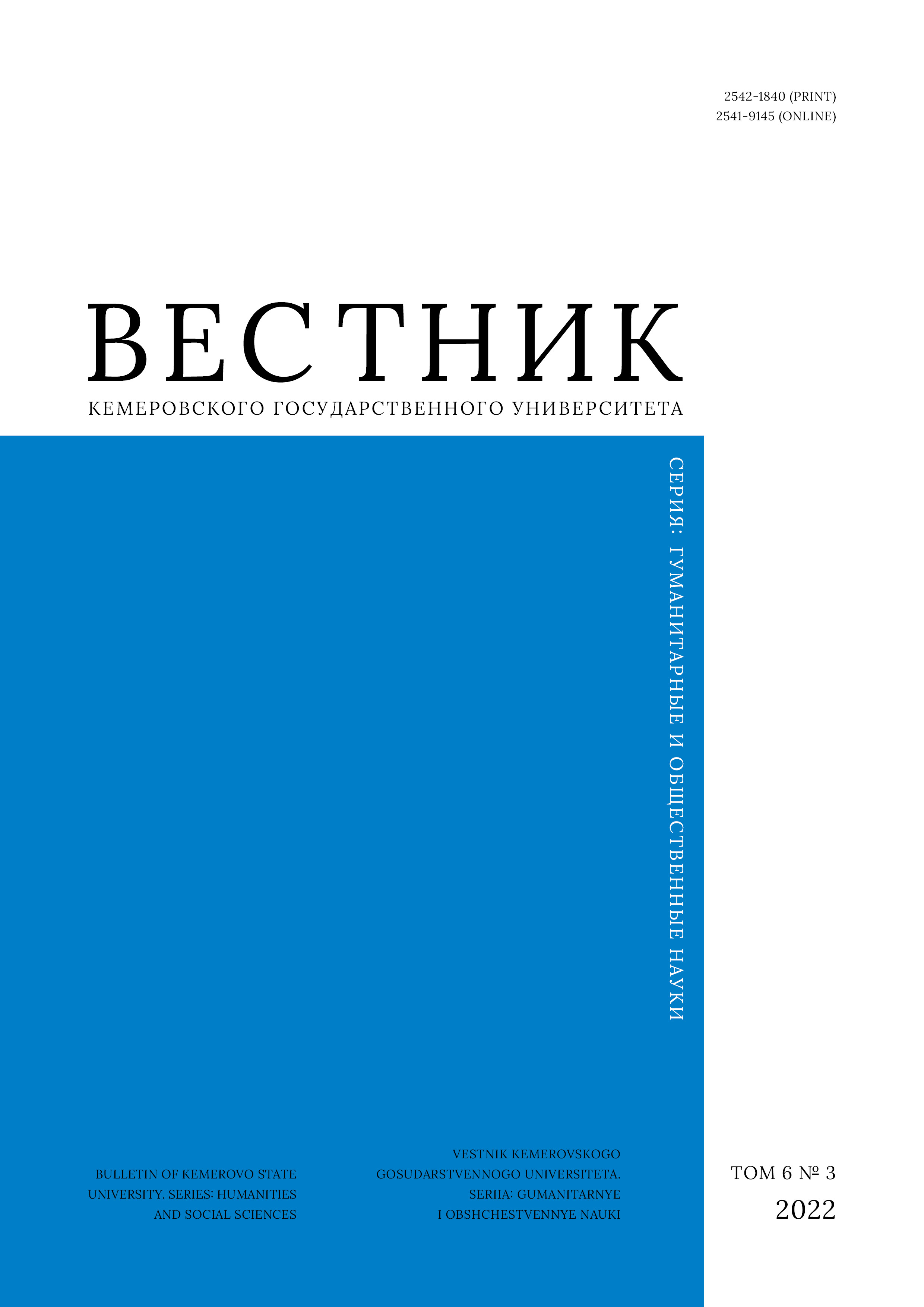Moscow, Russian Federation
Abstract: The current civilizational crisis of ideology makes peoples join their efforts in search for adequate responses to the challenges of the time. The modern modeling of new state and legal forms of civilizational unity uses abstraction, analysis and synthesis, as well as specific historical and comparative legal approaches. Observation of political and legal processes makes it possible to hypothesize on the transformations of modern civilizational states. The present article features various possible forms of Slavic state unity. The authors used N. Ya. Danilevsky's scientific heritage to consider the theoretical and legal issues of pan-Slavism, as well as the civilizational contradictions between various Slavic peoples and between Russia and the West. The paper introduces three prospective levels of a Pan-Slavic unity. The first one presupposes Slavic self-identification with the preservation of the common folk spirit and the interpenetration of Slavic cultures. The second level involves an interstate confederation of Slavic states. The third level is a Slavic Federation of Russia, Belarus, and Serbia. The authors believe that a legal pan-Slavic unity is possible if it maintains different levels and forms. The existing European constitutional and state-building experience proves that unified political regimes and social systems are less important than an international legal mechanism for harmonizing pan-Slavic interests in Europe. This mechanism should be aimed at preserving the traditional closeness and mutual influence of Slavic cultures, art, everyday life, and mentality. This pan-Slavic interstate mechanism could coordinate the interests and stabilize the development of Europe. The Pan-Slavic union state is possible if individual Slavic states consolidate their civil and political will on their unification with Russia.
N. Ya. Danilevsky, Slavs, state, Pan-Slavic union, federation, civilization, orthodoxy, Russia, the West
1. Baburin S. N. The moral state: Russian view on the values of constitutionalism. Moscow: Norma, 2020, 536. (In Russ.)
2. Baburin S. N. A moral state as a political and legal idea, the time of which has come. Mezhdunarodnyi zhurnal konstitutsionnogo i gosudarstvennogo prava, 2021, (1): 14-20. (In Russ.) URL: https://histrf.ru/magazine/article/nravstvennoe-gosudarstvo-kak-politiko-pravovaya-ideya-vremya-kotoroy-prishlo
3. Kerimov A. D. Morality, state, capitalism: reflections on the theory of the moral state of S. N. Baburin. Gosudarstvo i pravo, 2022, (1): 98-109. (In Russ.) https://doi.org/10.31857/S102694520018439-3
4. Danilevsky N. Ya. Russia and Europe. Moscow: Kniga, 1991, 574. (In Russ.)
5. Tulaev P. V. Russia, Slavs, and their neighbors in antiquity. Moscow: Veche, 2019, 560. (In Russ.)
6. Kikeshev N. I. History of Eurasia. Origins. Hypotheses. Discoveries. Vol. 1: Siberia is the cradle of mankind. Moscow: IWC, 2018, 580. (In Russ.)
7. Kikeshev N. I. Slavic ideology. Moscow: Institute of Russian Civilization, 2014, 704. (In Russ.)
8. Leontiev K. N. East, Russia, and the Slavs: philosophical and political journalism. Spiritual Prose (1872-1891). Moscow: Respublika, 1996, 798. (In Russ.)
9. Girenok F. I. Russia and Europe: what are the changes after Danilevsky? Essays on conservatism, 2020, (3): 195-198. (In Russ.) http://dx.doi.org/10.24030/24092517-2020-0-3-195-198
10. Blyakhman B. Ya. Civil society: the main criteria for the formation and functioning. Kemerovo: Kuzbass, 2005, 552. (In Russ.)
11. Vernadsky G. V. The Mongolian Yoke in Russian history. Fundamentals of Eurasianism. Comps. Agamalyan N. et al. Moscow: Arktogeia-Tsentr, 2002, 351-362. (In Russ.)
12. Koval B. I., Semenov S. I. Civilizational identification of Russia and Iberian American parallels. Moscow: ILA RAS, 1998, 70. (In Russ.)
13. Toynbee A. J. Civilization on trial. The world and the West. Moscow: AST; Astrel; Vladimir: VKT, 2011, 318. (In Russ.)
14. Toynbee A. J. A study of history. Moscow: Progress; Kultura, 1996, 607. (In Russ.)
15. Velichko A. M. The divine face of Byzantium. Moscow: Veche, 2020, 640. (In Russ.)
16. Struve P. B. Patriotica: politics, culture, religion, and socialism. Moscow: Respublika, 1997, 527. (In Russ.)
17. Panchenko A. B. Supranationalism in the era of nationalism: civilizational approach from N. Ya. Danilevsky to V. I. Lamansky. Essays on conservatism, 2020, (3): 121-134. (In Russ.) http://dx.doi.org/10.24030/24092517-2020-0-3-121-134
18. Karpov S. P. Reflections on history and historical education issues. Moscow: Russian Academy of Science, 2019, 48. (In Russ.)
19. Velichko A. M. Church and political ideal. Moscow: Veche, 2020, 688. (In Russ.)
20. Kozhevnikov F. I. Pre-20th century Russian state and international law. Moscow: Zertsalo, 2014, 312. (In Russ.)
21. Ragimov I. M., Baburin S. N., Golik Yu. V., Duk Yu. I., Korobeev A. I. Modern state in the era of global transformations: analytical report. St. Petersburg: Iuridicheskii tsentr-Akademiia, 2019, 344. (In Russ.)
22. Zakhartsev S. I. Law: new ideas and readings. Moscow: Iurlitinform, 2021, 440. (In Russ.) https://doi.org/10.17513/NP.453
23. Baburin S. N. Russia between Rome and Qin: on the spiritual and moral transformation of states. Trudy Instituta gosudarstva i prava RAN, 2022, 17(1): 57-76. (In Russ.) http://dx.doi.org/10.35427/2073-4522-2022-17-1-baburin
24. Baburin S. N. The proto-Slavic basis of the Slavic-Turkic civilizational union. Integration constitutionalism. Moscow: Norma; INFRA-M, 2022, 264. (In Russ.)
25. Bagdasaryan V. E. Matrix of public consciousness. Moscow: Nashe zavtra, 2021, 416. (In Russ.)
26. Shulzhenko Yu. L. From the history of the federation in Russia: the monarchic period. Moscow: ISL RAS, 2005, 175. (In Russ.)




















